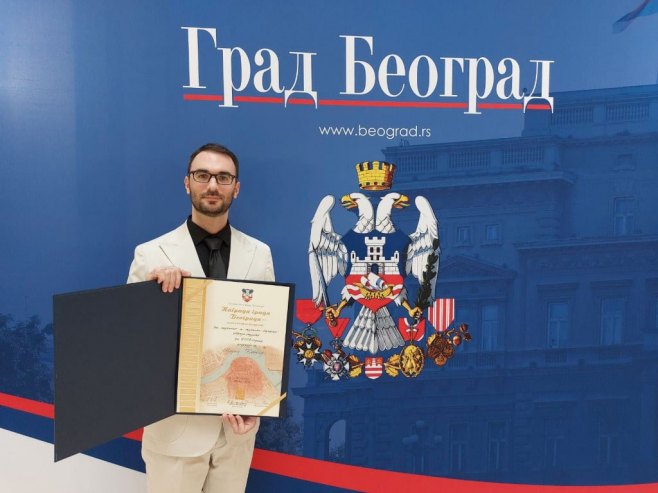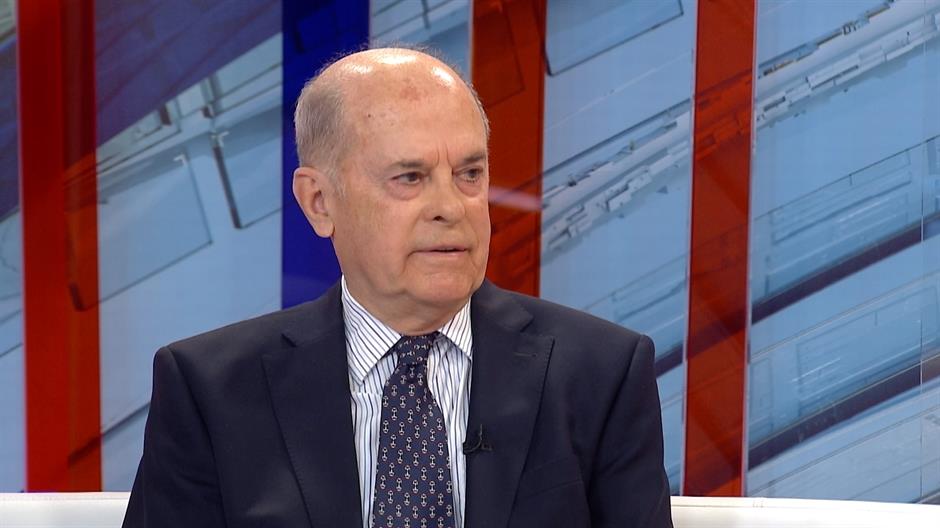By signing Annex 10 of the Dayton Agreement, the signatory parties, the Republic of Srpska, the Federation of BiH, so-called the Republic of Bosnia and Herzegovina, Serbia and Croatia requested “the appointment of a High Representative who would be appointed in accordance with the relevant resolutions of the United Nations Security Council”.

That is why the first resolution of the UN Security Council number 1031, which was adopted by the UN Security Council on December 15, 1995, the day after the signing of the peace agreement in Paris, confirmed the role of the High Representative, which the parties agreed to by signing Annex 10, according to which the High Representative shall: “monitor the implementation of the Peace Agreement; mobilize and guide civil organisations and agencies; coordinate their activities.”
Only one
In Article 26 of the resolution, the UN Security Council: “Supports the establishment of a High Representative at the request of the parties who, in accordance with Annex 10 on the civilian implementation of the Peace Agreement, shall monitor the implementation of the Peace Agreement and mobilise and, if necessary, guide the involved civil organisations and agencies and coordinate their activities, and approves the appointment of Mr. Carl Bildt for the High Representative.”
Therefore, only at that point everything was according to Annex 10, and that is why Carl Bildt is the only legal and legitimate High Representative of the signatory parties of Annex 10, which provides for ONLY ONE HIGH REPRESENTATIVE. After the peace negotiations and the initialling of the peace agreement and all 11 annexes on November 21 in Dayton, a conference was held on the implementation of the peace agreement on 8-9 December 1995 in London, thus, before the General Framework Agreement for Peace in BiH was officially signed in Paris on December 14 of the same year. Then the peace conference grew into the Peace Implementation Council (PIC). There was the PIC at the time of the adoption of Resolution 1031 of the UN Security Council, but that resolution does not refer to it, but to the “request of the parties”. All other high representative appointments after Carl Bildt were imposed by the Peace Implementation Council (PIC). That is why these appointments are a hoax and a fraud contrary to Annex 10 of the Dayton Agreement. It should be noted that after Bildt, high representatives were proposed by the PIC or even more illegally – by its Steering Board, but at least they had the confirmation of the UN Security Council. That is how Carlos Westendorp, Wolfgang Petritsch, Paddy Ashdown, Christian Schwarz-Schilling, Miroslav Lajčák and Valentin Inzko lined up after Bildt. All of them were confirmed by the UN Security Council. The obligation to confirm was indisputable for everyone, so the Constitutional Court of BiH in its decision of July 8, 2006 clearly stipulated that the High Representative shall be confirmed by the UN Security Council. If it is emphasized that the decisions of the Constitutional Court of BiH are final and binding, then how can there be a High Representative without confirmation of the UN Security Council?
There is an interesting text in the “Commentary on the Constitution of BiH”, which has over 900 pages and numerous authors – foreign judges of the Constitutional Court of BiH, high-ranking officials of the OHR and other international organisations. It was edited by Christian Steiner and Nedim Ademović, and published by the German “Konrad Adenauer” Foundation in Sarajevo in 2010. In the commentary on Article 6 of the Constitution of BiH, which established the Constitutional Court of BiH, this is also stated: “If we take a closer look at the resolutions of the UN Security Council that were adopted under Chapter 7 of the UN Charter, it becomes clear that the High Representative is a body established by the treaty, that it is not endorsed by the UN Security Council and that its powers do not originally derive from the current resolutions of the UN Security Council, despite the fact that the appointment of a person to the position of High Representative depends on the approval of the UN Security Council.”
Christian “go home” Schmidt
So who is Christian Schmidt? What is he, I beg your pardon? A failed German politician, a self-proclaimed high representative without seeking the signatories of Annex 10 and without the confirmation of the UN Security Council, an admirer of traditions of the Nazi army and Hitler’s pilots, who will be recorded as the final gravedigger of what is left of the anti-Dayton BiH.
The BiH Judiciary as a respecter of the Office of High Representative
According to the Constitution of BiH, there is only the Constitutional Court of BiH, with specific jurisdiction related to constitutional disputes. There are nine judges – two Serbs, two Bosniaks, two Croats and three foreigners. Although the Constitution of BiH provided for that after five years, foreign judges may be replaced by law, this has not yet occurred. There are still three foreign judges in the Constitutional Court of BiH who are elected by the President of the European Court of Human Rights. Even the European Union, determining 14 priorities that must be fulfilled by BiH in order for it to be approved for accession negotiations as a candidate for EU membership, stated “resolving the issue of international judges” in the Constitutional Court of BiH. The number of priorities that the EU sets as conditions for Bosnia and Herzegovina shows that, as before, they actually present obstacles due to which BiH will never become a full member of the EU. It always reminds me of the thought of the French sociologist Edgar Morin: “For me, for us, Europe was a lying word.”
In the Constitution of BiH, there is no judiciary at the level of BiH, and this was a major obstacle to the unitarisation of BiH. That is why the OHR figured out how to make the rule of law prescribed by the international Dayton Agreement senseless. “The Prosecutor’s Office and the Court of BiH” do not exist in the Constitution of BiH, because BiH has no judicial jurisdiction, except for the Constitutional Court of BiH. The then High Representative, Wolfgang Petritsch, passed on the Decision on the Establishment of the Court of BiH on 12.11.2000, stating a number of arbitrariness without foundation in the Constitution of BiH. We specify: “Judicial institutions are being established at the state level, which fulfil the established constitutional requirement to resolve criminal acts committed by public officials of Bosnia and Herzegovina in the performance of their duties, as well as in administrative and electoral affairs, which is a prerequisite for the establishment of the rule of law in Bosnia and Herzegovina.”
Thus, as a constitutional basis, we got an established constitutional requirement. This is creative nonsense worthy of the arrogance and impertinence of the OHR and its supporters. Petritsch’s wording “solving criminal acts” is an unspoken threat to “public officials”, which also applies to democratically elected or appointed officials in BiH.
But this is not the end of the nonsense, so the Constitutional Court of BiH, ruling on the appeal of a member of the National Assembly of the Republic of Srpska against Petritsch’s law, issued Decision No. U 26/01 of September 28, 2001, which declared Petritsch’s imposed “Law on the Court of BiH” as constitutional, with an explanation, inter alia: “It can be expected that the establishment of the Court of BiH will be an important element in ensuring that the institutions of Bosnia and Herzegovina act in accordance with the rule of law and that they meet the requirements of the European Convention in terms of fair trials before the courts and effective legal remedies.”
A disordered reasoning speaks of the insecurity of the construction of the imposed “state judiciary”. Instead of stating the article of the Constitution of BiH according to which the Court of BiH exists, the wording “might be expected” is stated. As expected, everything turned out wrong, so the “Court and Prosecutor’s Office” of BiH led to even greater legal uncertainty and the growth of inter-ethnic distrust. This is especially visible in cases of war crimes and selective justice, why not say the Muslim judiciary of BiH. The examples of the “fair” trial of Naser Orić, Sakib Mahmuljin and Atif Dudaković prove that.
Otherwise, Decision U26/01 was passed by a 5:4 overvote of the judges. Two Bosniak judges and three foreign judges voted in favour of the decision. Four Serb and Croat judges of the Constitutional Court of BiH voted against the decision on the constitutionality of the Court of BiH, with their separate opinions. For example, the Judge Prof. Zvonko Miljko, Ph.D, in his separate opinion, states: “The Court of BiH cannot exist if it is not in the Constitution of BiH itself. This law could not be passed even by the Parliamentary Assembly of Bosnia and Herzegovina, nor by the High Representative, who in this case “substitutes the Parliamentary Assembly of Bosnia and Herzegovina” as stated in the Decision of the Constitutional Court itself. The only way to establish such a court would be possible through constitutional revision, in accordance with Article 10.1. of the Constitution of Bosnia and Herzegovina.”
There was no such revision or amendment to the Constitution of BiH. The Parliament should have been authorised to enact a law on the Court of BiH by amending the Constitution of BiH, first according to the procedure of amending or supplementing the international treaty. That would be constitutional and legal just as the US Constitution authorises their parliament – the Congress to introduce courts lower than the US Supreme Court, which is their highest court. Therefore, without the constitutional authority of the Congress, it would not be possible to pass a law that would establish other courts in the USA apart from the Supreme Court. So that those who say that there is no need for constitutional provisions on the judiciary, but that these can be passed by the Parliamentary Assembly, do not forget that. It might be so, if authorised for that by the Constitution of BiH. And it is not. Prof. Miljko confirms this in his book “Constitutional Order of Bosnia and Herzegovina” stating: “Courts are always a constitutional category.”
Anti-Dayton BiH
BiH created in Dayton has been illegally devastated for years, fulfilling demands of the Bosniak public exclusively, with the undisguised oppression of Serbs and the deprivation of the competences from the Republic of Srpska. I do not even mention the BiH Croats, because they are too attached to the politics of official Zagreb, so they exclude themselves as a factor in deciding Croat interest in BiH. When the Constitutional Court of BiH and the adjusted judiciary, which are not in the Constitution of BiH, are added to the anti-Dayton activities of the OHR, all of this becomes an instrument of terror.
And then, in the finale, the Schmidt-like actions of the unconstitutional “Prosecutor’s Office and Court of BiH” in which Muslim-Bosniaks persecute the institutions of the Republic of Srpska and its democratically elected and appointed officials, result in a dissonant BiH that continues on the path of inevitable and irreversible disintegration. You got what you asked for.
Author: Slavko Mitrović









